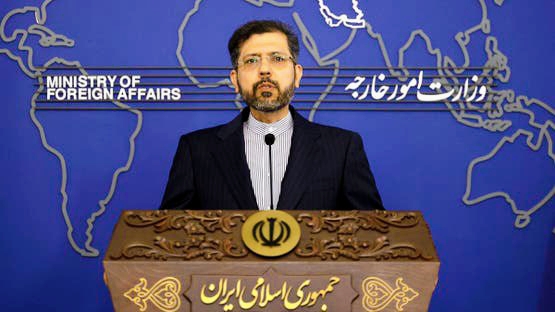Iranian Foreign Ministry Assistant Saeed Khatibzadeh announced yesterday evening, Saturday, that Tehran is not in a hurry to enter any kind of indirect interaction or negotiation with the United States, emphasizing that his country will not succumb to Washington's pressures.
Khatibzadeh stated that the United States "does not set red lines when it comes to attacking the peaceful nuclear facilities of other countries," warning that "Washington must learn that aggression against the sovereignty of countries in this violent manner is unacceptable."
These statements came amid fears of escalating conflict between Iran and Israel following airstrikes targeting Iranian nuclear facilities last June.
The Iranian official confirmed that the uranium enriched to 60% is currently fully under the supervision of the International Atomic Energy Agency, adding that agency inspectors will return to Iran soon.
For his part, Iranian Foreign Ministry spokesman Ismail Baqaei clarified on July 28 that the International Atomic Energy Agency will visit Iran within two weeks, noting that Tehran will provide a guiding document for future cooperation with the agency based on a new law passed by parliament that imposes restrictions on inspection operations, where any future inspection now requires the approval of the Iranian Supreme National Security Council.
Despite these steps, the spokesman reiterated that Tehran may resume indirect talks with the United States "if national interest requires it," but he indicated that there are currently no plans for a sixth round of nuclear negotiations with Washington.
These statements come days after the Director General of the International Atomic Energy Agency announced Iran's readiness to resume technical talks.
Tehran and Washington have held five rounds of negotiations under the auspices of Oman, but they stopped after the 12-day war in June between Iran and Israel.
It is noteworthy that the International Atomic Energy Agency has expressed serious concern about Iran's stockpiles of highly enriched uranium, which amount to about 400 kilograms, amid Tehran's ongoing refusal to halt domestic uranium enrichment, asserting that its nuclear program is entirely peaceful as it is a member of the Treaty on the Non-Proliferation of Nuclear Weapons.
These developments come amid rising tensions in the region with fears of a comprehensive military escalation between Iran and Israel, amid international attempts to contain the crisis and maintain stability in the Middle East.

